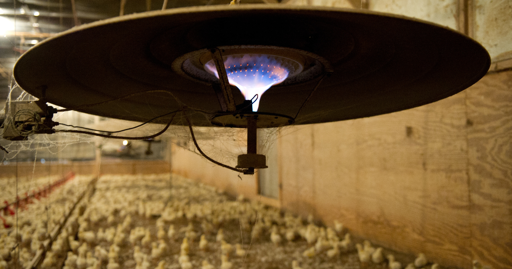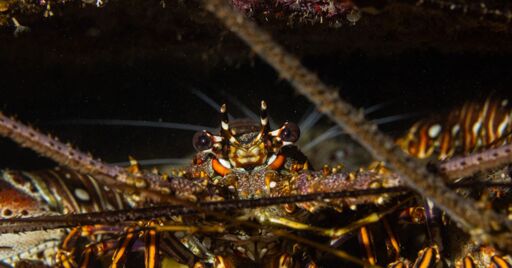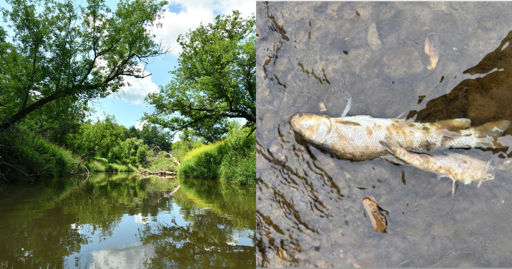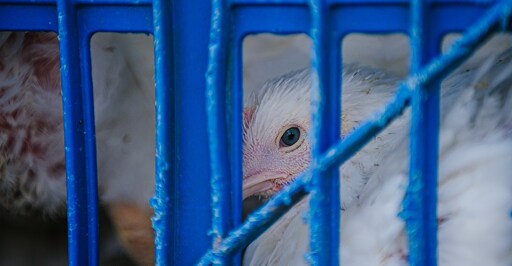- 150 Posts
- 272 Comments

 124·2 months ago
124·2 months agoNo, it doesn’t tell us nothing. These kinds of limitations are not uncommon for nutrition studies. It just is weaker evidence that doesn’t tell everything we ever might want. Studies will always have some methodological limitations. There is always some factor you might be forgetting or could do better. Science doesn’t work by looking at induvidial studies alone. We take things in aggregate
That being said, of course things like RCTs will always be preferred and considered much stronger evidence. On that front, there have been some RCTs in other related health risk incidents with similar findings. For instance, I have read about some RCT studies for cardiovascular health. One meat industry funded review of RCT studies on cardiovascular risk for red meat found plant substitution improved predictors of cardiovascular health
Substituting red meat with high-quality plant protein sources, but not with fish or low-quality carbohydrates, leads to more favorable changes in blood lipids and lipoproteins.
https://www.ahajournals.org/doi/10.1161/CIRCULATIONAHA.118.035225#d3646671e1
Or from another review looking at larger changes
Nevertheless, several RCTs have examined the effect of vegetarian diets on intermediate risk factors of cardiovascular diseases (Table 1). In a meta-analysis of RCTs, Wang et al. (22) found vegetarian diets to significantly lower blood concentrations of total, LDL, HDL, and non-HDL cholesterol relative to a range of omnivorous control diets. Other meta-analyses have found vegetarian diets to lower blood pressure, enhance weight loss, and improve glycemic control to greater extent than omnivorous comparison diets (23-25). Taken together, the beneficial effects of such diets on established proximal determinants of cardiovascular diseases found in RCTs, and their inverse associations with hard cardiovascular endpoints found in prospective cohort studies provide strong support for the adoption of healthful plant-based diets for cardiovascular disease prevention
https://www.sciencedirect.com/science/article/am/pii/S1050173818300240

 22·2 months ago
22·2 months agoAlso for people who prefer roasted, but don’t want to go through the effort of waiting for an oven to preheat: using an air fryer has changed how I cook vegetables. It’s amazing how “what if we made a convention oven, but smaller” is actually really helpful because it heats up super fast. Very convenient to roast them with an air fryer and very tasty

 123·2 months ago
123·2 months agoYes, this new study has limitations. The authors do note that and aren’t pretending otherwise. This is coming in the context of other studies with similar conclusions which the original article talks about. This new study is a singular imperfect data point, but is combined with other data points that point in the same direction.
What it is primarily helpful for is in that it has a large N value of 79,468 participants and the population they are looking at doesn’t partake in as many carcinogens that make it harder to tell cancer rates apart (which is both a strength and also a study limitation too)
From the study
This study has several other strengths. 1) This is probably the single cancer cohort with the largest number of vegetarians, and especially vegans, who have rarely been studied effectively for cancer incidence. This allows consistent definitions and methods to be applied across all variables; 2) in many studies of vegetarians, vegetarian diets may be relatively transient for some subjects, but less so in AHS-2; 3) the level of validation available for the main variables on which the assignment to vegetarian diets is based; 4) the relatively large Black subgroup in which vegetarian diets have rarely been studied. Race is always a co-variate in our statistical models; and 5) the absence (practically) of cigarette smoking, a common confounder for many cancers, and very little alcohol
There are also study limitations, the most prominent of which is still the relatively small numbers of less common cancers, particularly among the less common dietary patterns (vegans and pesco-vegetarians) that diminish statistical power; second, there is the relatively health-conscious low-meat-consuming reference group, the Adventist nonvegetarians, that also limits power; third, that we were able to measure dietary and other data only at study baseline and not during follow-up. Finally, there are the limitations of all observational studies, particularly the possibility of unmeasured confounding, which can be limited but never avoided

 421·2 months ago
421·2 months agoThis is an article that talks about multiple studies with differing methodology, including one new one. Posting without reading the article does not help actually advance discussion in general. Posting without reading just reaffirm existing beliefs
For instance, the new study itself did not use the term “plant heavy”, they looked at different sub groups

 912·2 months ago
912·2 months agoHumans and human ancestors have also been consuming large quantities of plants for far earlier than that. Here’s another paper looking 780,000 years ago finding a wide amount of plants consumed
we demonstrate that a wide variety of plants were processed by Middle Pleistocene hominins at the site of Gesher Benot Ya’aqov in Israel (33° 00’ 30” N, 35° 37’ 30” E), at least 780,000 y ago. These results further indicate the advanced cognitive abilities of our early ancestors, including their ability to collect plants from varying distances and from a wide range of habitats and to mechanically process them using percussive tools.
https://www.pnas.org/doi/10.1073/pnas.2418661121
I am not saying that hunting didn’t happen (it definitely did). I am just saying that more recent research is painting a very different picture of the level of consumption of it

 82·2 months ago
82·2 months agoMore modern research does not suggest this made up most of the consumption for humans even before agriculture. For instance,
Our results unequivocally demonstrate a substantial plant-based component in the diets of these hunter-gatherers. This distinct dietary pattern challenges the prevailing notion of high reliance on animal proteins among pre-agricultural human groups

 132·2 months ago
132·2 months agoDoes the Lemmy post title not have “in mice” in it for you? I added it to the title of the post to clarify this. It should show as
Red meat wreaks havoc on gut and drives inflammatory bowel disease (IBD) in study on mice
Whereas the original title of the article was:
Red meat wreaks havoc on gut and drives inflammatory bowel disease

 2010·2 months ago
2010·2 months agoMy point is that it was way more rare than what people’s diets look like today. Not zero but not dominant. Wide reliance on plants is even true before modern agriculture. For example:
Here we present the isotopic evidence of pronounced plant reliance among Late Stone Age hunter-gatherers from North Africa (15,000–13,000 cal BP), predating the advent of agriculture by several millennia

 3114·2 months ago
3114·2 months agoHumans historically, also didn’t eat much meat up until very recently. More recent research suggests our ancient human ancestors were eating far more plants than meat
EDIT: For example:
Here we present the isotopic evidence of pronounced plant reliance among Late Stone Age hunter-gatherers from North Africa (15,000–13,000 cal BP), predating the advent of agriculture by several millennia
The council (me) has decided that I too actually wanted to see bean memes again. It has bean started again
Now you’re getting it!
Be the change you want to see in the world and post beans

 6·2 months ago
6·2 months agoI mean this a state where their anti-bestiality law already have an explicit exception for “accepted animal husbandry practices”, so I’m going to take a wild guess that they’re not going to make any attempts to enforce it that way.
https://www.flsenate.gov/Session/Bill/2011/0344/BillText/er/HTML
(Though to be fair these kinds of exception exists in a surprisingly large number of states)

 4·2 months ago
4·2 months agoMaybe worth reminding her of that option too. A lot of people do things for culture because they feel like they are required or supposed to, even if they might feel better not taking part in certain practices

 9·2 months ago
9·2 months agoIf I were to hazard a guess, I’m going to imagine that this won’t completely solve the feeling bad/guilty about it aspects. Another option to consider: can always just have something else
It’s very much human to have those feelings and healthy in the short term to have those feelings, but we should generally try to listen to them or they eat away us. Or in the really cheesy way of putting it “listen to your heart”
Honey production is not exactly exploitation free. For instance, queen bees often have their wings clipped or are intentionally killed to be replaced by another
Moreover, honey production also out competes native/wild bee populations which hurts them. Especially since honeybees are heavily used well outside their native ranges
We found compelling evidence that honey bee introductions indirectly decrease pollination by reducing nectar and pollen availability and competitively excluding visits from more effective native bees. In contrast, the direct impact of honey bee visits on pollination was negligible, and, if anything, negative. Honey bees were ineffective pollinators, and increasing visit quantity could not compensate for inferior visit quality
https://esajournals.onlinelibrary.wiley.com/doi/full/10.1002/ecy.3939

 10·2 months ago
10·2 months agoFirst they fixate over protein metrics, and now they don’t want the actual protein synthesis? Having high intake of amino acids was already not doing most of what they claimed, but now we’re just gonna have our body not even use them? What a waste of resources. 0/10 (/s)

 4·3 months ago
4·3 months agoTo clarify at the end, by “the case”, I mean the original article my comment is replying to. As in they posted an Ohio Supreme Court ruling from 2024
Free range in the US and many other countries just requires “access” to the outdoors. Access is not defined. That can be conveniently interpreted to be as little as “we had a door to a tiny screened area we open up sometimes.” Or just straight up not enforced. Free-range eggs don’t have a legal definition at all in the US from my understanding
And often for a number of the terms, they just have to submit documentation to the USDA, but not actually ever receive inspections on it. Even when clear cut labels like “no antibiotics ever” seems like it’d be hard to have a weak definition around right? Well silly, you can just ignore violations of it. Here’s one example of that for the beef industry
Federal Inspectors Found Antibiotics in Beef ‘Raised Without Antibiotics.’ They Took No Action

 26·3 months ago
26·3 months agoPoultry farming is an industry where terms mean nothing. It is rife with horribly misleading terms that are completely unregulated or have weak definitions that are unenforced. This is not as uprising when you see it through that lens. It’s a continuation of existing absurdity that are less talked about
For instance, “free-range” doesn’t actually have to mean being outdoors at all
Bringing up a Tyson competitor, the farm manager wonders how other poultry companies handle supposedly free-range-raised chickens. The short answer: They don’t, really.
“Those birds don’t go outside — you know that,” the technician replies. “They don’t all go out … Look that up online.”
The manager chimes in: “It’s not like they make it like all of ’em come out and enjoy the sun.”
“That is strictly for commercial [advertising] purposes,” the technician says.
[…]
In 2017, the Intercept reported an investigation into a dozen California farms owned by a free-range chicken company that found no evidence of any animals spending any time outdoors. The chief animal care officer for Perdue Farms, a major chicken producer, has even said the vast majority of its free-range chickens stay indoors.
Also as a note, the ruling on this case was from last year
EDIT: to clarify by “the case”, I mean the original article my comment is replying to















The question science isn’t ready to answer